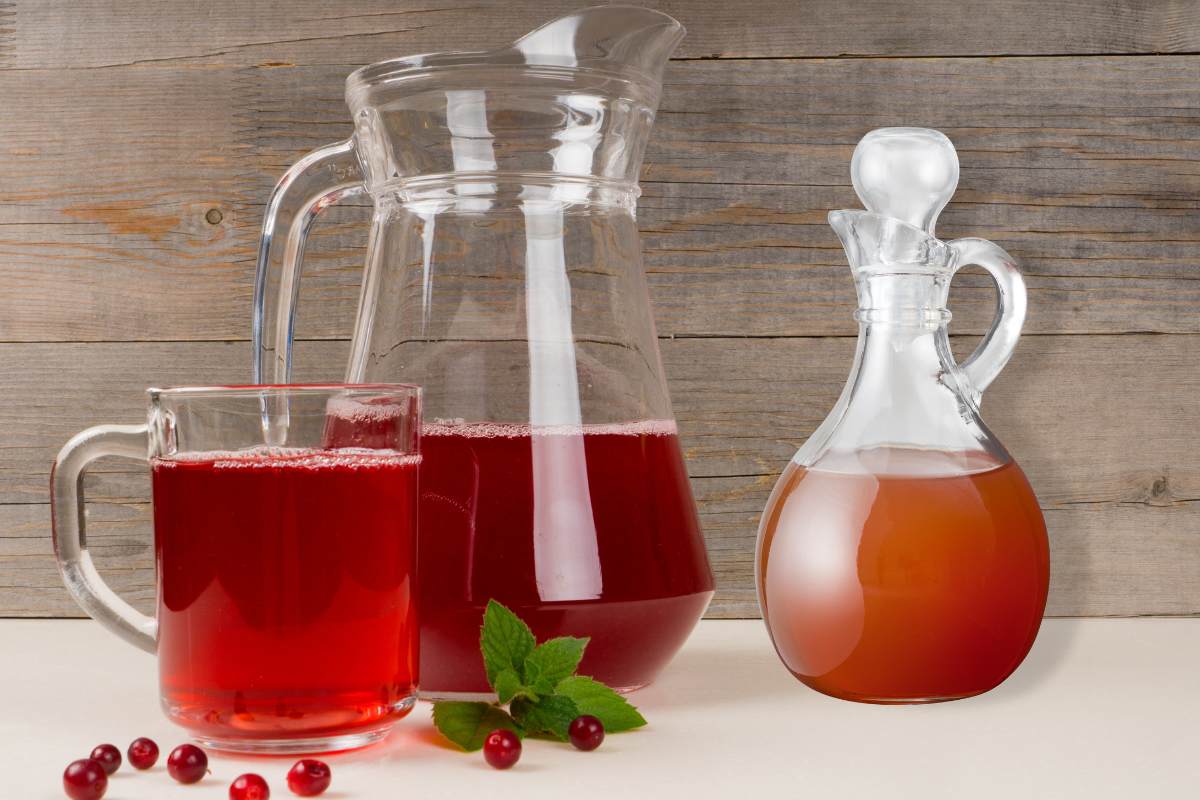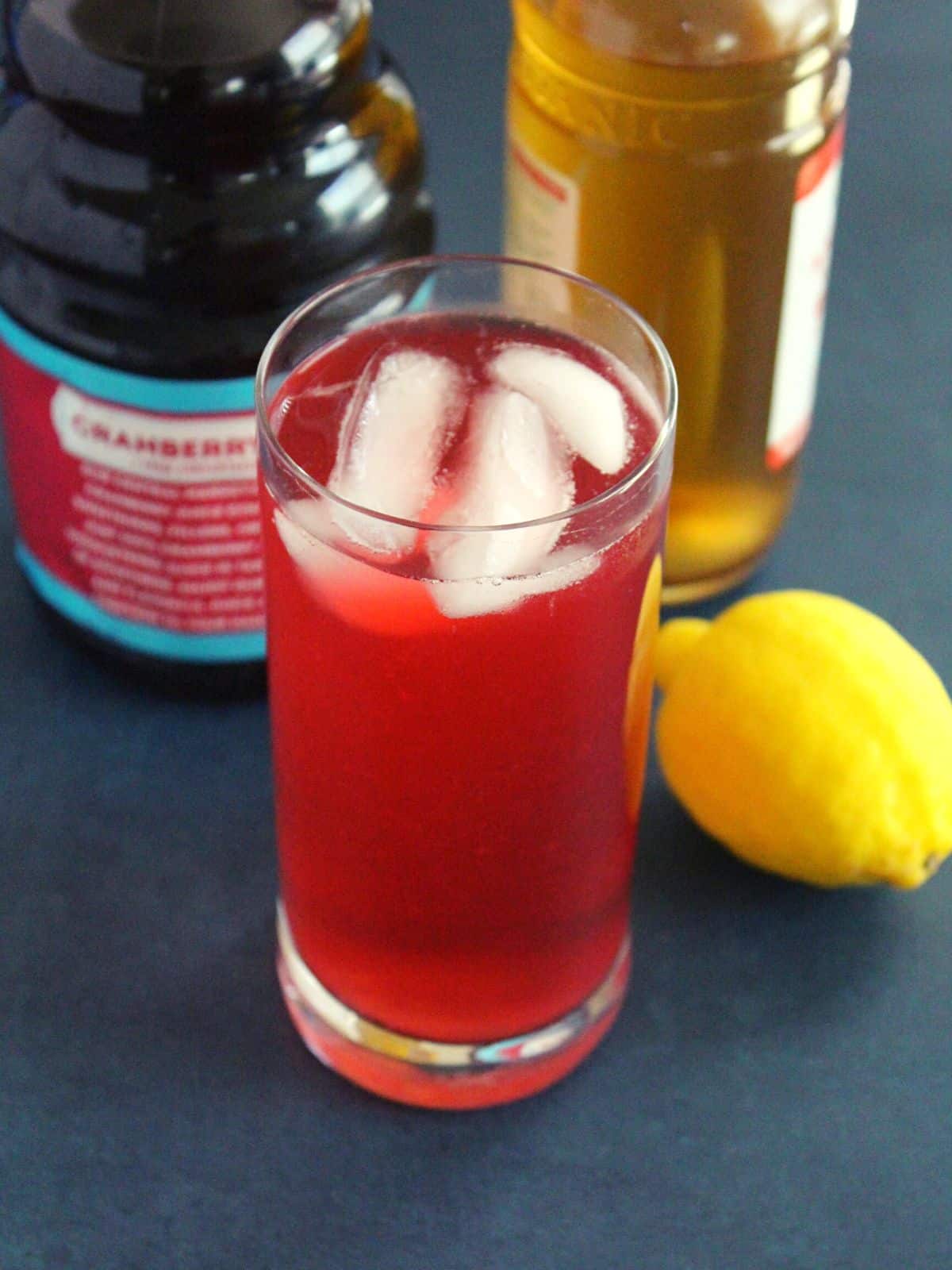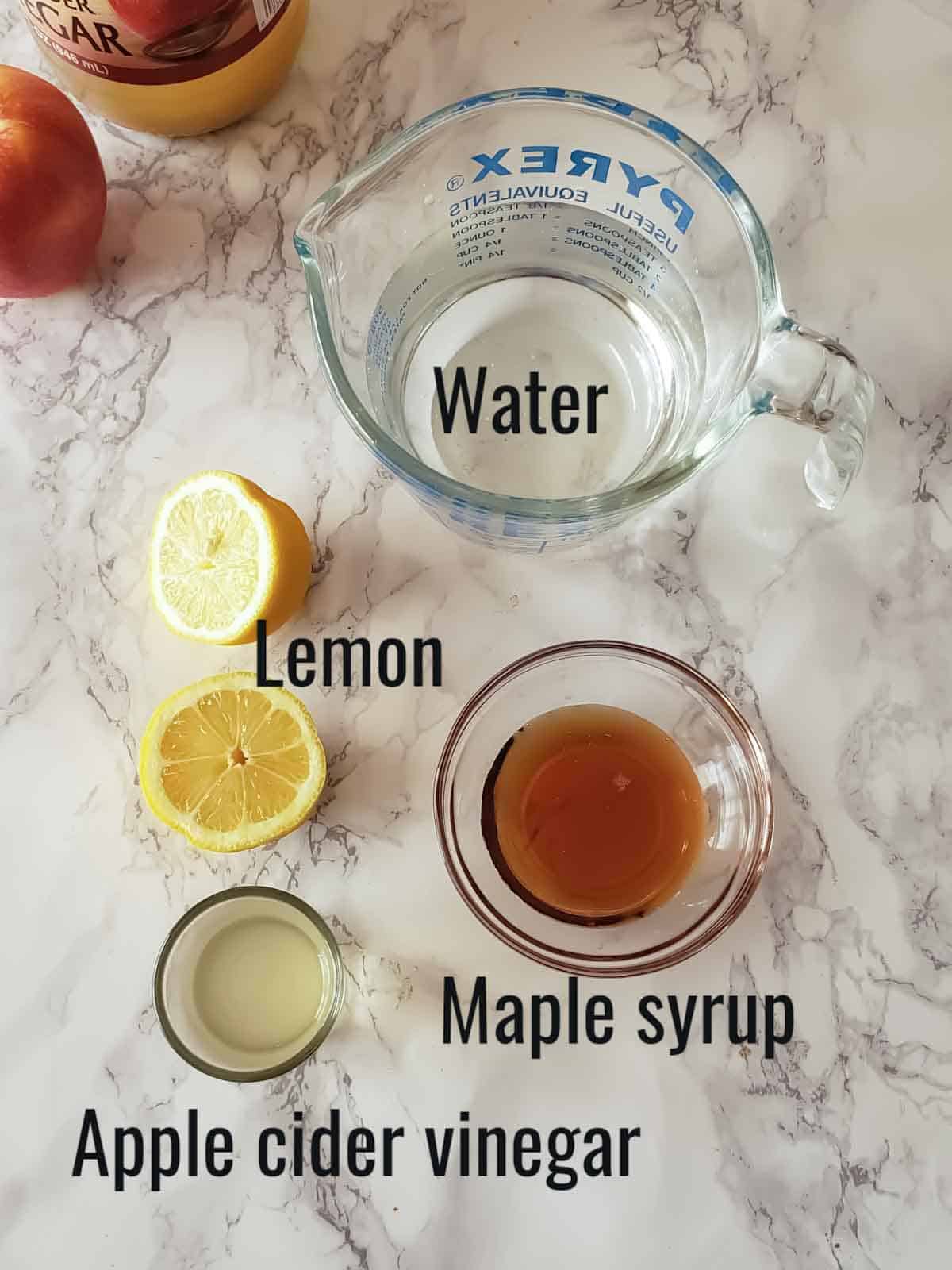Cranberry Juice Lemon Juice Apple Cider Vinegar

In the realm of natural remedies, a trio of beverages – cranberry juice, lemon juice, and apple cider vinegar – have long been touted for their purported health benefits. These kitchen staples are believed to hold the key to everything from urinary tract health to weight management. But how much of the hype is supported by scientific evidence, and what are the real risks and benefits of incorporating these acidic elixirs into our daily routines?
This article delves into the scientific literature surrounding cranberry juice, lemon juice, and apple cider vinegar. It examines their purported health claims, scrutinizes the existing research, and offers a balanced perspective on their potential roles in promoting well-being. We'll explore the evidence-based facts, potential side effects, and consider expert opinions to help you make informed decisions about incorporating these beverages into your lifestyle.
Cranberry Juice: A UTI Fighter?
Cranberry juice is perhaps most famous for its alleged ability to prevent urinary tract infections (UTIs). The prevailing theory centers on compounds called proanthocyanidins (PACs) found in cranberries. These PACs are believed to prevent bacteria, particularly E. coli, from adhering to the walls of the urinary tract.
However, the scientific evidence on cranberry juice and UTIs is mixed. A systematic review and meta-analysis published in the Cochrane Library found that cranberry juice may prevent recurrent UTIs in women. However, the study also acknowledged that many of the included trials were of low quality, and that cranberry juice was not as effective as antibiotics in treating active infections.
It is important to note that cranberry juice typically contains high levels of sugar. This can be problematic for individuals with diabetes or those watching their sugar intake. Sugar-free cranberry extracts or supplements may be a better option for those concerned about sugar content.
Lemon Juice: Vitamin C Boost and More?
Lemon juice is a readily available source of vitamin C, an essential nutrient known for its antioxidant properties and immune-boosting effects. A single lemon can provide a significant portion of your daily recommended intake of vitamin C. This vitamin is crucial for collagen synthesis, wound healing, and protecting against cell damage.
Some proponents of lemon juice also suggest it can aid in weight loss and improve digestion. These claims are largely based on anecdotal evidence and limited scientific research. The citric acid in lemon juice may stimulate digestive enzymes, but more research is needed to confirm its impact on digestion.
The acidity of lemon juice can erode tooth enamel over time. Diluting lemon juice with water and rinsing your mouth with plain water after consumption can help mitigate this risk. Individuals with acid reflux or other gastrointestinal issues should also exercise caution.
Apple Cider Vinegar: The Gut Health Guru?
Apple cider vinegar (ACV) has gained considerable popularity in recent years, largely driven by claims of its ability to regulate blood sugar, promote weight loss, and improve gut health. These claims often stem from the presence of acetic acid, the main component of vinegar, and the presence of a substance known as the "mother," a colony of beneficial bacteria.
Some studies have shown that ACV can improve insulin sensitivity and lower blood sugar levels after meals, particularly in individuals with type 2 diabetes. A small study published in the Journal of Functional Foods found that consuming ACV before a meal significantly reduced postprandial glucose and insulin responses.
However, it's crucial to note that these studies are often small and short-term, and more research is needed to confirm these effects on a larger scale. Undiluted ACV can be very acidic and can damage tooth enamel, irritate the esophagus, and even lead to burns. It should always be diluted with water before consumption.
Additionally, ACV can interact with certain medications, such as diuretics and insulin. Individuals taking these medications should consult with their doctor before incorporating ACV into their diet. Furthermore, the "mother" in ACV, while purported to be beneficial, has not been extensively studied, and its benefits remain largely speculative.
Expert Opinions and Considerations
Registered dietitians and healthcare professionals generally agree that cranberry juice, lemon juice, and apple cider vinegar can be part of a healthy diet when consumed in moderation. However, they emphasize the importance of not relying on these beverages as miracle cures or replacements for conventional medical treatments. Dr. Emily Carter, a registered dietitian, states, "While these beverages may offer some potential benefits, they should be viewed as adjuncts to a balanced diet and healthy lifestyle, not as standalone solutions."
It's also crucial to consider the source and quality of these beverages. Opt for 100% cranberry juice without added sugars, fresh lemons whenever possible, and raw, unfiltered apple cider vinegar with the "mother." Always dilute acidic beverages to protect your teeth and esophagus, and be mindful of potential interactions with medications or pre-existing health conditions.
Ultimately, the decision to incorporate cranberry juice, lemon juice, or apple cider vinegar into your diet is a personal one. Weigh the potential benefits against the risks, consult with your healthcare provider, and make informed choices based on your individual needs and health goals.
Looking Ahead: The Future of Research
Future research should focus on larger, well-designed clinical trials to further investigate the effects of cranberry juice, lemon juice, and apple cider vinegar on various health outcomes. Studies should also explore the mechanisms of action by which these beverages exert their effects, and identify the specific populations who may benefit most from their consumption.
Furthermore, research is needed to standardize the quality and composition of these beverages, particularly apple cider vinegar, to ensure consistent and reliable results. By conducting rigorous scientific investigations, we can gain a clearer understanding of the true potential of these natural remedies and their place in promoting optimal health and well-being.
In conclusion, while cranberry juice, lemon juice, and apple cider vinegar possess some potential health benefits, they are not panaceas. Their effectiveness varies depending on the individual and the specific condition being addressed. Consume them in moderation as part of a balanced diet, and always consult with your healthcare provider before making significant changes to your diet or treatment plan. A balanced approach, grounded in scientific evidence, is key to harnessing the potential benefits of these beverages while minimizing potential risks.


















